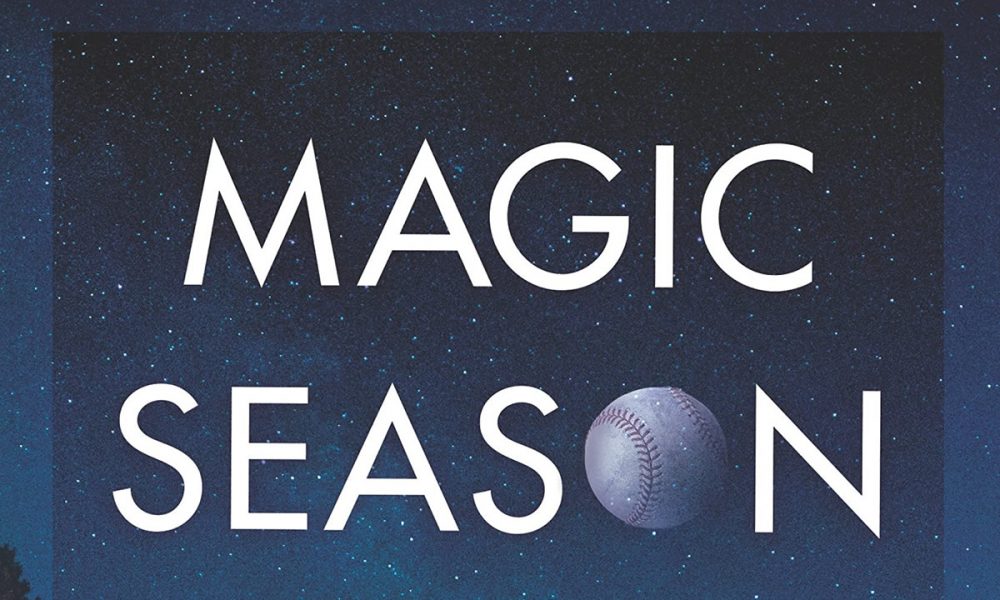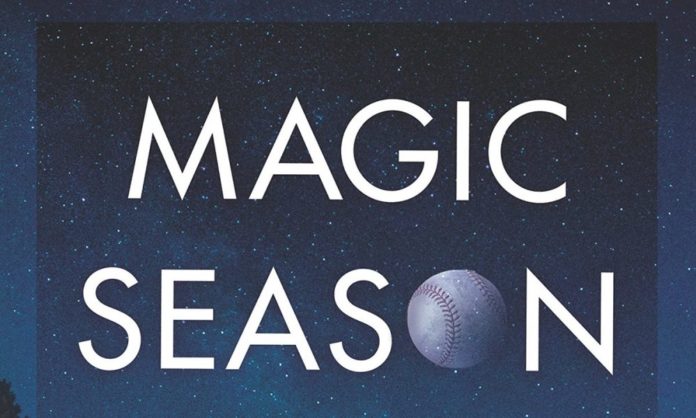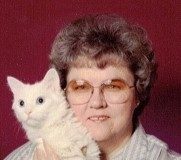
‘Also a Poet: Frank O’Hara, My Father, and Me’
By Ada Calhoun
c.2022, Grove Press
$27/259 pages
Families. Especially if your parents are acclaimed writers and artists, they can get under your skin. They love you, but sometimes withhold praise and suck the air out of the room. You wonder if you’ll end up as a second-string imitation of your famous folks.
That was what growing up was like for writer Ada Calhoun, author of the new memoir “Also a Poet: Frank O’Hara, My Father and Me.”
“Happy families are all alike; every unhappy family is unhappy in its own way,” Tolstoy wrote in “Anna Karenina.”
If you’re queer, you know not only how right Tolstoy was, but that family tension makes for riveting reading.
Calhoun, a lifelong New Yorker who grew up in the East Village, doesn’t disappoint.
Her parents are creative and talented. Her mother Brooke Alderson started out performing stand-up comedy in lesbian bars. Later, she was an actress whose most well-known roles were in “Urban Cowboy” and “Family Ties.”
Her father Peter Schjeldahl, born in 1942, is a poet and The New Yorker art critic.
Schjeldahl is far from a pompous gasbag. As The New York Times book critic Molly Young said recently, in his book “Hot, Cold, Heavy, 100 Art Writings 1988-2018,” Schjeldahl received, perhaps, the most awesome blurb ever. “Bruce is no longer the Boss; Schjeldahl is!” Steve Martin said of the volume.
Not surprisingly, Calhoun didn’t have a typical childhood.
Gay writer Christopher Isherwood, author of “The Berlin Stories,” was among those who Calhoun’s parents hung out with. “One of the most agreeable children imaginable,” Isherwood said of Calhoun when she was a child, “neither sulky nor sly nor pushy nor ugly, with a charming trustful smile for all of us.”
Most of us as kids see “The Nutcracker” with an aunt or grandma. Calhoun saw the holiday classic with a “dreamboat” poet. An artist posing topless so other painters could paint her wasn’t shocking to the young Calhoun.
While Calhoun’s Mom makes several memorable appearances, “Also a Poet” is focused on Calhoun’s relationship with her father.
Relationships between daughters and fathers can be difficult. But they’re often more fraught when the dad is a renowned writer. Especially when Calhoun, born in 1976, was growing up.
Then (thankfully, to a lesser extent, now) if you were a male writer, life in your household centered around you. You didn’t help with housework or pay much attention to your spouse and kids.
Though Calhoun was raised in the sophisticated East Village, life with her father fit this pattern. One day, Schjeldahl let her go alone, with no directions, at age eight on a bus to a friend’s birthday party.
When she was young, Calhoun wanted to escape the Village literary life. “My typical answer was farmer because that was the most tangible, least cosmopolitan option I could think of,” Calhoun writes, when as a kid, people asked her what she wanted to be when she grew up.
But Calhoun couldn’t evade the clutches of the writing bug. From early on, she wanted to get away from her father’s shadow. So her work could be judged on its own merit. She changed her last name from Schjeldahl to her middle name Calhoun.
Despite their difficulties, one thing bonded Calhoun with her dad: their love of Frank O’Hara, the openly queer poet and Museum of Modern Art curator, who died at 40 in a Jeep accident on Fire Island in 1966.
In the 1970s, Schjeldahl, who like so many poets, writers and artists then and now, idolized O’Hara, tried to write a biography of the beloved poet. But O’Hara’s sister and executor Maureen Granville-Smith derailed his attempt to write the bio.
But all wasn’t lost. Decades later, Calhoun discovered the tapes of the people (from Larry Rivers to Willem de Kooning) who Schjeldalhl had interviewed for the project in the basement of her parents’ building.
In a magnificent Rubik’s Cube of literary history and memory, Calhoun weaves a tale of family and of making art.
The memoir will inspire you to read O’Hara. O’Hara wrote funny and moving poems out of the pop culture and sadness of his time (from the “The Day Lady Died” on the death of Billie Holiday to the hilarious “Poem” – with the line “Lana Turner has collapsed!” to “Personal Poem” about Miles Davis being beaten by cops).
“His life force was on the page,” Grace Cavalieri, Maryland’s poet laureate and the producer/host of the radio show “The Poet and the Poem, said of O’Hara in an email to the Blade.
In this “Don’t Say Gay” era, Calhoun and O’Hara give us hope that art will still be a life force.
The Blade may receive commissions from qualifying purchases made via this post.








